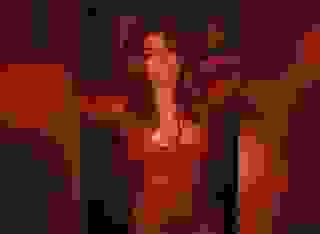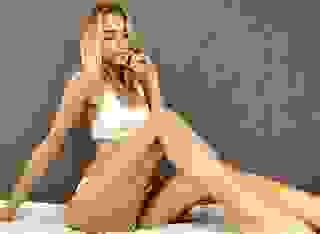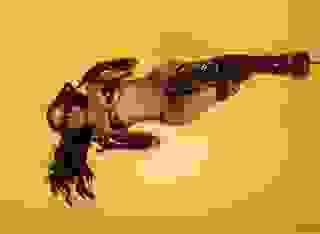Note: You can change font size, font face, and turn on dark mode by clicking the "A" icon tab in the Story Info Box.
You can temporarily switch back to a Classic Literotica® experience during our ongoing public Beta testing. Please consider leaving feedback on issues you experience or suggest improvements.
Click here- "Does this happen everywhere?" asked Sanatha. "How long has this been going on?"
- "For centuries, I think." I said. "Aludar gave me books about the times of the Kings. When peasants couldn't pay their rent, they had to sell themselves - or their children - into slavery. They were shipped down the river, to Whydah, to be sold at auction. Elves and half-elves sold for more, but they had to be captured. There was always a plentiful supply of humans. I just... I didn't think that the same kinds of things were still so widespread."
Sanatha was near tears. "Why didn't you tell me?" she said.
- "Aludar thought you were too young. I didn't know enough, either."
It was an uncomfortable afternoon and evening for all of us. Urbo kept his distance, which I suppose was a good thing. The next morning, he came over to us.
- "I hope that I haven't spoiled your voyage." he said.
It was my sister who answered him.
- "Not at all, Captain. Thank you for trusting us enough to share your tale. I feel as though my eyes have been opened."
***
The multiple bays and inlets guarding the approaches to Portoa were impressive enough; but my first glimpse of the city, with the Amber Hills looming in the distance, was simply stunning.
It's not that Portoa is especially beautiful. But for sheer size, for the number of docks and wharves servicing the ships in harbour, for the masses of people scurrying about... I'd never seen the like. It confirmed what I think I'd already guessed: that Elmina and Whydah were second-rate towns, compared to this bustling trade emporium - perhaps even third-rate.
Varna had timber, and some iron. The Duchy exported grain and meat - but now that I'd heard Urbo's story, I wondered if we could afford it. Portoa, meanwhile, was a shipbuilding centre, as well as the source of many minerals and ores from the Amber Hills. Their merchants traded with virtually the entire continent of Leinyere.
My father was a powerful figure, in our little corner of the northwest, but we had neither quality trade goods, nor large quantities of goods to sell. We had no leverage, nothing that would garner attention. Varna would always be lining up to wait our turn.
Portoa was also pre-eminent when it came to magic, as this was the headquarters of the Topaz Order. In Elmina, we had Master Durgulel, and twice weekly lessons for four students.
I was very glad that we had come here: I would never mistake Varna for the centre of the universe ever again.
My father had no qualms about imposing on the Mainyuls, the family of Aludar's new bride. The city was so large that it was necessary for our hosts to send a guide, and then a carriage and several humbler carts for our guards and servants. I hoped that they were deriving some sort of prestige from our visit, to offset the cost of feeding and housing us all. We were definitely a curiosity: the servants couldn't help gawking at Durgat.
We said our farewells to Captain Urbo, who would take on a new cargo and set sail for Whydah. He would return in a month to collect us.
The Mainyuls took us on tours of their city. We were all entranced by the variety of people on the streets, especially near the harbour. We'd seen elves before, but I saw dwarves, and even a pair of Anocot wearing kilts - I believe they were male. Durgat bristled at the sight of them.
Three days after our arrival, the Mainyuls hosted a levee in our honour. They provided appropriate garments for Sanatha and me (since our own clothing was apparently not suitable enough). A levee, in Portoa, seemed to consist of standing still while dozens of people were introduced to us, and we all exchanged polite inanities.
After a short break for refreshments, the young males clustered around Sanatha, trying to impress her. Meanwhile, a gaggle of young women preened themselves near Hurmas, Sezima and me. They were quite curious, and asked the most ingenuous questions.
- "What is the most popular food in Varna?"
- "Do you have horses there?"
- "Is he tame?" That one was referring to Durgat, of course.
- "Somewhat." said Sezima. "He hasn't bitten anyone for weeks."
I'd had enough after an hour, but there was no immediate relief in sight. I don't believe that all of the young women of Portoa were completely ignorant, but a levee was no place to meet the ones who weren't.
It was more of a test of endurance than a genuine opportunity to socialize, or to meet interesting people. The levee went on long past the point where my patience had evaporated. My cheeks hurt from pretending to smile.
When the ordeal was over, Sanatha groaned and collapsed into my arms (mainly so that I would have to hold her up).
- "Let's pray that we never have to do that again."
Prayers were of no avail. Over the next month, we were the central attraction at seven more levees. That was in addition to luncheons and formal dinners with a guest list (in addition to us) of anywhere from four to fourteen.
I don't wish to say anything negative about the Mainyuls; it's just that there weren't many positive things to say. They spent a good deal of money while we were their guests. I couldn't really call it generosity, though; it was more a conspicuous display of their wealth and taste, aimed at their fellow Portoans more than at us.
The head of the household was a very successful merchant who'd made a substantial investment towards his connection with the ruling House of Varna. In addition to his daughter's dowry, there was the cost of entertaining during our stay. He wanted to see some return for the monies spent.
His wife was an accomplished hostess, quite expert at managing the servants. She had been very attractive in her younger days, dressed extremely well, and could bore me stiff in a matter of moments. I hoped, for my brother Aludar's sake, that her daughter was cut from different cloth.
They had a son in his early thirties. I believe that the Mainyuls were hoping that he could win Sanatha's heart (and dowry). Given the fellow's excessive vanity and sense of entitlement, that was highly unlikely - but my sister was far too kind (and diplomatic) to dash his hopes from the outset.
Meanwhile, I met at least two dozen eligible young maidens, all of good families (by Portoan standards - that is to say, wealthy families). Some were attractive. Some were reasonably intelligent, or had pleasant personalities. A few combined all three qualities. It didn't matter at all; I had no intention of becoming involved with any of them.
A small part of that was my desire not to lead anyone on, or to encourage false hopes. The simple fact is that none of them could even begin to compare to Glasha.
I was polite, and pretended more patience than I had. Hurmas helped as he could, even though none of the Portoan families were interested in the son of a Gerdar. Had he been heir to a Tir, that might have been different.
Sezima sparkled in these situations. He was a master of light banter and polite inanities. He was never over-familiar, never too flirtatious. He carried the conversation for our side virtually every time. I'm sure that he left more than a few of the young ladies wishing that he was the son of the Duke.
- "Thank you - again." we told him.
- "Glad to be of service." said Sezima. "It's no bother. I'm just practicing my repertoire."
A week in Portoa would have been a wonderful learning experience. Two weeks was an education. We spent a month there.
***
Captain Urbo returned a day early. We were all eager to go aboard the First Light, and continue on with the final leg of our journey. Urbo seemed genuinely pleased to see us (his journey to Whydah and back had been profitable.). He also carried new letters for us.
There was nothing for me from my father, though he had sent a brief message for Sanatha. Aludar had sent me a letter, enclosed in a book on the History of Galtin's Point (our next destination) as a present. Toran had remembered me as well; he sent a fishing line with a lure that he'd fashioned himself - it must have taken hours to craft.
Glasha had written me a letter, and that was the best gift I could have asked for.
You-know-who came to visit me. He seemed to be fairly impressed by his first meetings with you. He also taught me something new, which I will be happy to share with you when we are together again.
Visca is quite big now. You will be an uncle when you return, and Sanatha will be an aunt. It makes me laugh to think of it.
Then I think of how long it will be before I finally see you again. Be careful, Tauma. Come home to me.
I found time to read Aludar's tome, and caught a fish with Toran's lure. But I also spent some of the long hours aboard the ship practicing the exercises Durgulel had taught us. Glasha had motivated me. I became much more adept at gathering the aether.
We sailed back to Whydah, primarily so that Urbo could unload the cargo he'd picked up in Portoa, and then take on a new one. That gave us plenty time to visit our uncle and cousins again - and my mother, which I could have done without.
She was cold to Sanatha, rude to my friends, and absolutely insufferable to me.
- "Why is she like that with you?" asked Sanatha.
I could only shake my head. "I wish I knew."
It was a relief to go aboard Urbo's ship three days later, just to get away from Whydah. I sent another packet of letters for Elmina, for my father, Aludar, Toran, and Glasha. I also included a letter for Aludar's wife, Visca, telling her my (most positive) impressions of her family, and recounting the best parts of our visit to her home city. I closed by telling her how much I looked forward to meeting her.
The journey east was much longer than I'd expected. The winds were contrary, but the distance was greater than the maps seemed to suggest.
Finally, we turned south, past the Isle of Tali, and sailed into Kelthala's Wound. Kelthala forgive me - I'd never taken her as seriously since I'd beaten one of her supposed devotees (the scholar who'd insulted Glasha). Kelthala's Wound was an immense bay - an inland sea, almost, leading to Seamount, and to Galtin's Port.
I'd been stunned at the size of Portoa. Now I was struck dumb.
I'd heard about it - and read about it - but I was unprepared for my first sight of the Cog, a gigantic stone island, suspended hundreds of meters above the water by eight massive chains the like of which I'd never seen. Atop this man-made island, which the locals called a 'gear', sat a combination Clock Tower and Lighthouse, hundreds of meter high.
Beyond that lay the towering cliffs, into which immense caverns had been dug. Urbo told us that more people lived inside the caverns than above them. Atop the cliffs were the city's landward defences, the fabled Watchtowers, each boasting a number of powerful, long-range cannons.
My father had cannons. Almost forty of them.
There had to have been a hundred, or a thousand times as many in Galtin's Port - and most of those of greater calibre.
The population of Elmina might have approached 10,000. Urbo calmly informed us that over one hundred thousand people lived in Galtin's Port - and that there were just as many visitors at any given time.
- "A quarter of a million, really." he said.
Every major guild was represented here. Neighbouring states sent diplomats (whose main function was to facilitate trade). Each God and Goddess was also honoured with a major temple.
We were very tiny fish in a very large sea. As in Portoa, though, there were individuals who were attracted to our unique status, and to our minor degree of fame. We met the Lady ( a descendant of the slave-trading pirate who had founded the place, and given it his name), the High Watchman, and the Master of the Alchemists' Guild. We were also invited to a small function by the Varnan Consul, our father's representative in the city.
We avoided the gambling dens, and the brothels (though Sezima ventured into two of them, and returned from the second severely disturbed).
Galtin's Port had an insatiable appetite for raw materials: food, timber, metals, and slaves. Slaves, Bondsmen, indentured servants... the demand for labour was immense. One of Father's scholars had been correct: this city was sacred to Egan, God of Profit. Everything was for sale.
Food and drink, of course, but also creative little mechanicals gadgets. Sex was a commodity. You could watch a fight to the death, for entertainment, if that interested you.
In spite of these attractions, we spent almost a month there.
I was uncomfortable, and Sanatha knew it. I had a near-irresistible urge to go back to our lodgings and wash after meeting some of the more colourful citizens of the city.
Hurmas agreed with me, for the most part, but Sanatha found an ally in Sezima.
- "There may come a day," he said, "when we need cannon."
- "Or mercenaries." added my sister. "Best to know where they can be found."
- "Why on earth would we want mercenaries?" I said, loudly.
They were right, though. There was a great deal to be learned here. Much of what I saw and heard was troubling, but it was better to know of it than to remain ignorant.
Varna was a backwater. Our insignificance was our best defence - perhaps our only defence. It simply wasn't worthwhile for Portoa or for Galtin's Port to make the effort to conquer us. Our natural resources could be bought relatively cheaply, after we had done the work of harvesting or collecting them. These facts troubled me.
But there were many technological wonders to see, merchants and inventors to meet. We did all of those things.
And then I was eager for home. My desire to return to Elmina was now more powerful than my remaining curiosity about the wider world. Sanatha hadn't been travelling with us all that long, but she was beginning to see it in us, and in herself as well.
- "One last celebration, then, before we go." she said. "In honour of your birthday."
I was 18 years old.
Sanatha and Sezima found us a cliff-side establishment with a view out over the sea. We ate and drank, and re-told some of our favourite travel stories. We shared observations and conclusions, and tried to sum up what we'd experienced.
- "I'm glad we did this." said Sezima. "I feel so much wiser than I was. Still a long way to go, though."
- "I feel considerably older, in some ways." I said. "But I'm especially glad that we did this together."
- "Many good experiences," said Hurmas, "and a few bad. But good friends to share them with." He raised his cup, and we joined him in a toast.
- "This was a very good idea, San." I said. "Thank you for suggesting it."
- "You're very welcome." said my sister, with a smug little smile.
***
The return journey was anti-climactic. We were excited to be headed home, but also tired. I wasn't looking forward to being back in Whydah, either.
- "Can we skip that?" I asked. "Head straight up the river?"
- "No." said Sanatha.
We bid farewell to Captain Urbo in Whydah harbour. He'd been well paid, but seemed genuinely sad to see us go.
- "On the brighter side, though, I suspect that we'll meet again." he said.
- "I hope you're right." I said.
I tried to prepare myself, mentally, to survive another prolonged exposure to my mother. It was worse than even I had anticipated.
There was terrible news awaiting us: Aludar's wife, Visca, had died after giving birth to a baby girl.
- "Childbed fever, I'm told." said my uncle, Tir Esin.
- "Well," said my mother, "it's all for the better. Aludar should have married into a noble family from Varna - not some outsider from wherever."
I felt the bile rising in my throat. I didn't bother to excuse myself - I simply left the room.
Sanatha came to find me a short time later. I was sitting on the ground, with my back to the front wall of Uncle's estate. Durgat was standing nearby.
Sanatha sat down beside me, getting her skirts dirty in the process.
- "We can leave first thing tomorrow." she said.
I nodded.
"Sirma." she said.
- "Hmm?"
- "The baby's name is Sirma."
***
Days later, at the Elmina boat landing, Hurmas, Sezima and I embraced each other. There was little to be said; after a year and a half in each other's company, we were all eager to get home. Nothing we could say or do at this point would add anything to our experience, or to the bond we'd created.
I gave Durgat a cash bounty, and the gift I'd bought for him in Portoa: a silver belt buckle. Then I released him. He was as impatient as anyone to be back among his friends - and lovers.
We had to see Father first, of course. But Toran was waiting for us at the entrance to the compound. He was 15 now, with his long straw-coloured hair tied in a braid, and his earnest face covered with freckles.
He hugged us both, muttering 'Welcome home' as he did so. I hugged him back, and then held him out at arm's length.
- "Look at the size of you!" I exclaimed. "Almost a man grown - was I gone that long?"
My brother Merik was there as well.
- "The runt is back!" he shouted. "Hey there, runt!"
He still towered over me, and dominated us all with the breadth of his shoulders and the thickness of his skull.
- "Nice to see you, Merik." I lied. I left him to Sanatha - she was much better at these family greetings than I was.
Nathal, I learned, was away, with his poet friend, Gedere. But Aludar was waiting for us outside Father's chamber. He looked tired, and even more distant than usual, wrapped up in his own thoughts.
I didn't say anything. I simply hugged him, holding him tight, as Toran had welcomed me. Aludar seemed startled, at first - only after a moment did he return my embrace.
- "I'm sorry." I said. "I wish that I could've met her."
- "She would have liked you, Tauma." said Aludar, with a catch in his voice. "She read your letter, and was looking forward to... your return."
- "May I see the baby? Sirma?"
- "The nurses have her. But yes - come by later."
I could have said more, but Aludar gently pushed me towards Father's audience chamber. "Best not keep him waiting."
I'd been away a year and a half. My father hadn't changed. He appeared exactly the same - and acted just as I'd expected. He looked me over with that same expression of disappointment and slight distaste. Finally, he spoke.
- "You're back."
- "Yes, Father." I'm well - thank you for asking, I thought - though there was nothing to be gained by saying it aloud.
My father looked at me a little longer - almost as if he suspected me of harbouring private thoughts.
- "I want to know what you saw, and what you heard, at every point of your journey. Who said what - and who they said it to. Put it in writing."
I could only stare at him, aghast. "That will take weeks." I said.
- "Three days." said my father. "Dismissed."
***
Glasha was patient. She knew that I would have to see my brothers, and my father. She waited until that was done. I half expected her to be waiting for me outside Father's hall, but she wasn't.
I carried my travelling bag towards my own sleeping chamber, hoping to find her waiting somewhere along the way. She had to have known where I would go.
But then I realized that I knew where to find her. Somewhere private, where we could see each other for the first time in a year and a half without someone else watching and listening. Somewhere that we could be alone, for as long as we liked.
I ran down to the river, slowing to a walk only for the last hundred paces.
And there she was.
I actually came to a full stop. I stood still, so that I could drink in the sight of her, in partial profile. She had changed, a little. Glasha had always been thin, but now she could more properly described as slender. There was a gentle curve to her hip, and to her backside. Had those always been there, and I was only taking them in now?








